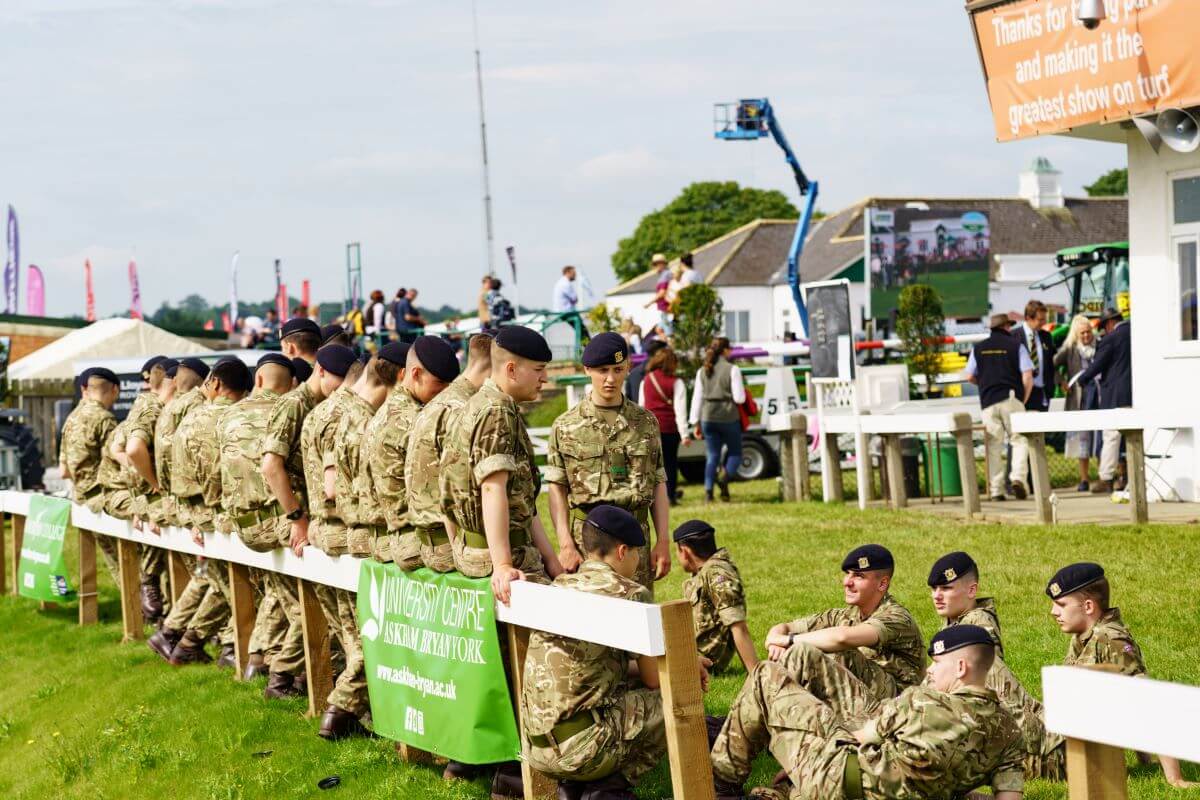According to experts, the British army is “too small” to engage in conflict amid growing threats from Russia, so they’ve taken new measures to encourage new recruits.
RAF Lifts Ban on Hand Tattoos
The UK Royal Air Force (RAF) has responded to recent reports that it isn’t large enough by rescinding the ban on hand tattoos for both new recruits and existing personnel.
An internal briefing addressed to senior RAF commanders and recruiters announced the shift in the tattoo policy after decade-long restrictions were eased.
“A number of potential recruits were ineligible to join the RAF due to having tattoos contrary to the policy,” according to a spokesperson.
“This change in policy is consistent with the RAF’s inclusion policies and helps to ensure that we continue to be representative of the modern-day society we serve,” they said.
The new change in ruling “aligns us with Royal Navy and Army policies,” the spokesperson continued, bringing the RAF into the more relaxed approach taken by other sectors of the armed forces.
Halving in Size
The British army has halved in size in the last three decades, but now, with threats coming from Eastern Europe, there’s a growing need to add to the total.
The Army’s renewed contract with recruitment firm Capita has not yielded anticipated results, with the Army struggling to meet its recruitment targets, a persistent issue since last April.
The threats have been looming for a number of years now, and Army Chief General Sanders called the current generation of soldiers the “pre-war” generation.
The comments came as threats from Russian President Vladimir Putin brought concerns about the use of nuclear weapons on a NATO country, as Putin insisted he was “not bluffing.”
British Army Considered “Too Small”
General Sanders admitted that the British army would be “too small” to engage successfully in any conflict with Russia.
The RAF has been easing its stance on tattoos since 2019, when Group Captain Becky Frater recognised, “We want to be more inclusive and recognise that tattoos are a form of self-expression.”
Hand tattoos are permitted in the Navy and the Army, but face tattoos are still prohibited. However, this is being challenged by critics who argue the forces can’t afford to be too picky anymore.
The easing of restrictions has resulted in Soldiers being allowed tattoos on their hands and necks, which were previously restricted. Full-sleeve tattoos are also permitted, as long as they do not extend beyond the wrist or collarbone, but anything deemed political, offensive or racist is still prohibited.
Capita Speaks Out at Army Policy
Capita managing director Richard Holroyd recently criticised the army’s long-winded recruitment process and the tattoo policies in response to the low recruitment count.
Defence Secretary Ben Wallace defended the low Soldier count, arguing that the world of warfare is changing and doesn’t require as many heads on the ground.
The Labour Party countered Wallace’s comments by saying that “size matters” when it comes to defence, although Wallace insists AI and drones allow for fewer recruits.
Increased Threats, Fewer Troops
Shadow Defence Secretary John Healey revealed that the plan for “fewer troops, fewer ships, fewer planes, over the next few years” contradicts the fact that “threats to Britain are increasing.”
With the British army currently sitting at just 76,500 personnel, the ease in tattoo restrictions is a way of encouraging more young people to sign up after increased threats of World War 3.
More Articles Like This…
Broken Britain: 12 Reasons Behind the UK’s Decline
Say the Unsayable: 10 Occasions When Farage Spoke His Mind About Britain
The post Too Small: The Army’s Strategy to Recruit More Soldiers Amid Global Conflict first appeared on Edge Media.
Featured Image Credit: Shutterstock / Steve Gill Photography
Oscar Davies, an expert in US and UK politics and sports, is renowned for his sharp and engaging writing style, appealing to a broad spectrum of readers.

